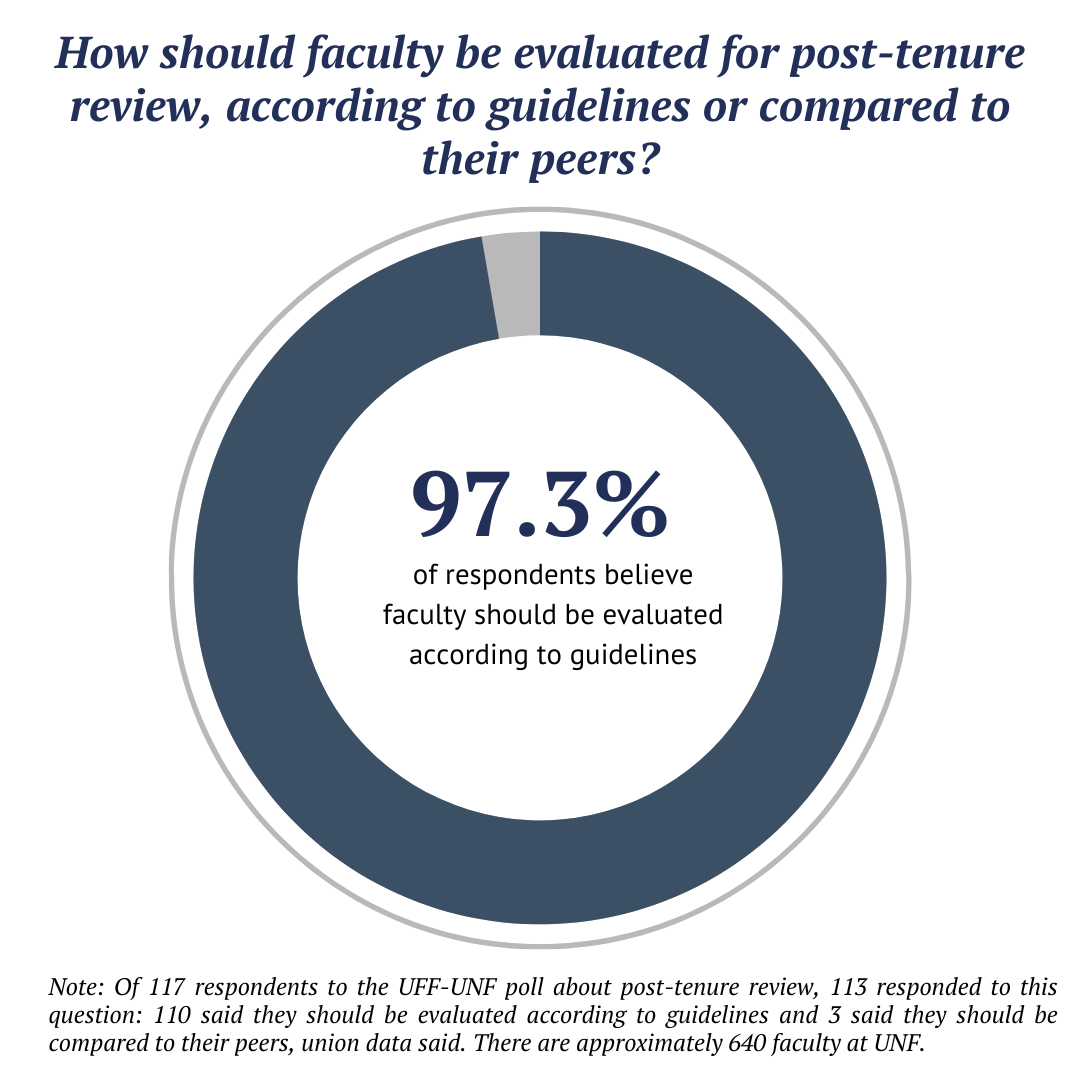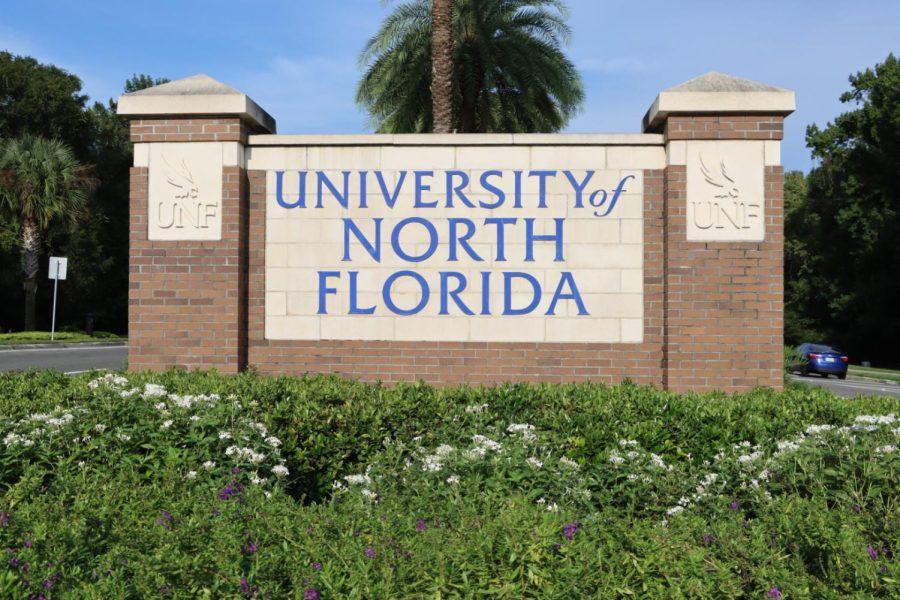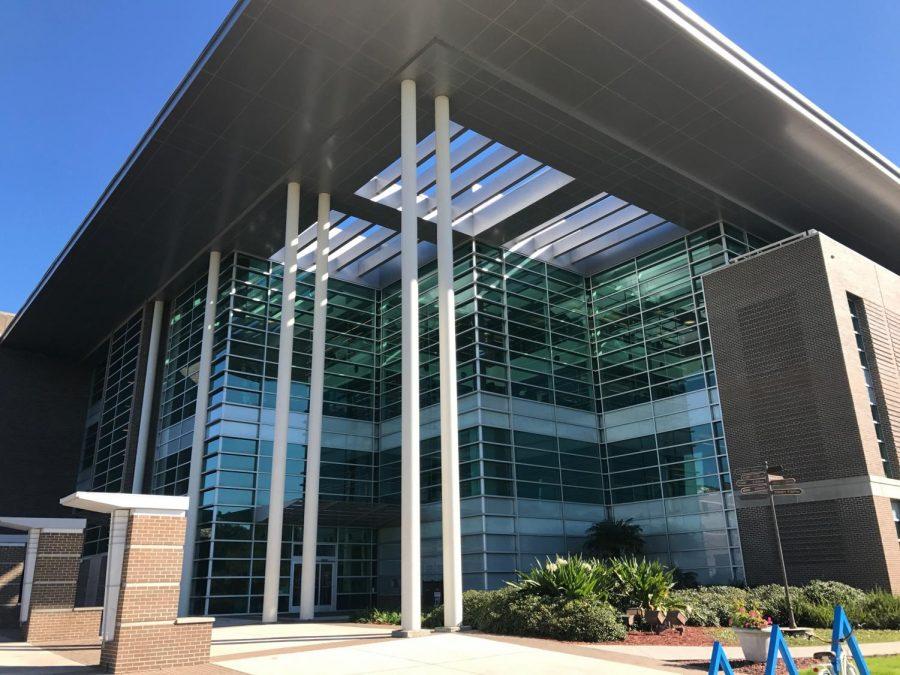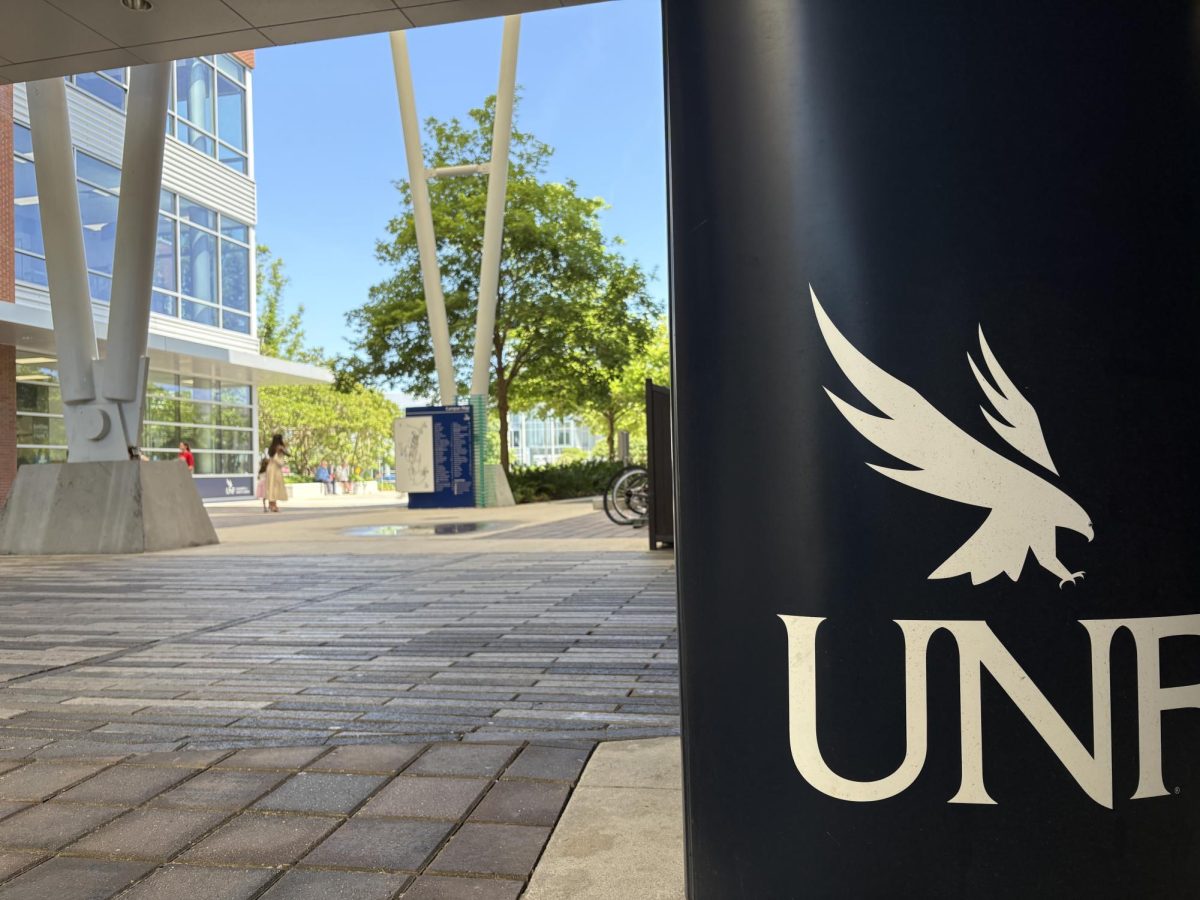Waist-deep in a months-long negotiation over how exactly the University of North Florida will implement its state-required post-tenure review policy, the Board of Trustees and faculty union bargaining teams will meet again on Wednesday with a common goal: to finalize a policy.
The teams are working right up against the Board of Trustees deadline of Sep. 11, when the board plans to vote on a final post-tenure review policy. But what is under negotiation, and what will it mean for UNF?
The Board of Governors-approved policy requires tenured faculty to undergo reviews every five years to “ensure high standards of quality and productivity.” However, new regulations cannot override or conflict with currently enforced contracts—in this case, the faculty’s Collective Bargaining Agreement (CBA) negotiated by the union. To smooth over the addition of this new policy, the faculty union and the university have engaged in what’s called “impact bargaining.”
What is impact bargaining?
Impact bargaining is when two sides bargain over how an employer’s decision may affect employees in a way not covered by previously agreed-upon contracts or collective bargaining agreements. Here, the two “sides” are as follows.
- The Board of Trustees bargaining team, which represents UNF
- The UNF chapter of the United Faculty of Florida union, which represents UNF faculty
This process focuses on what will be implemented by a particular decision, not the decision itself. In the end, all sides should reach an agreement.
For their part, UNF interprets the BOG’s evaluative criteria for post-tenure review and presents a policy based on their interpretation. The union is taking the university’s interpretation and ensuring that nothing conflicts with anything in their contract. From there, they negotiate in a sort of tug-of-war. Overall, how universities implement this post-tenure review policy has been largely left to each institution’s discretion.
“The Board of Governors expects institutions to move forward in implementing the post-tenure review process regardless of the status of your CBA, so long as there is a legal and defensible pathway forward, such as through impact bargaining,” wrote Rachel Kamoutsas, the BOG’s general counsel, to each Florida university’s general counsel on June 12, in an email acquired by Spinnaker.
Part-way through the summer semester, a UNF committee approved an earlier policy for post-tenure review on June 2. However, the union sent UNF a cease and desist letter arguing that its approval violated their CBA and must be bargained over. Soon after, it was pulled from the BOT agenda, the vote was postponed and the policy was opened for bargaining.
Since June 7, the BOT and union bargaining teams have been going back and forth hammering out the policy’s specific language down to which words are included and which aren’t.
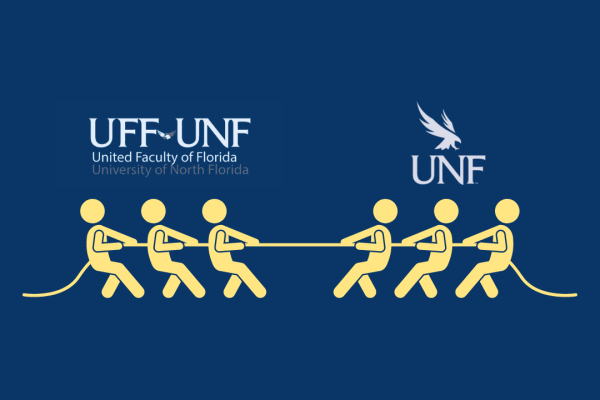
Where do negotiations stand now?
After the bargaining session last Friday, the union said they had made progress in negotiations. Tobias Huning, president of UFF-UNF, wrote in a mass email to union members that faculty who meet or exceed expectations in annual evaluation and have no disciplinary concerns, “should not be at risk of losing their jobs in PTR” with where the policy stands now.
However, there are still matters of contention during negotiations. A major one is defining how faculty should be evaluated for the review. The BOT team has said that their interpretation calls for faculty to be evaluated against their peers, but the union disagrees, arguing that evaluations should be against guidelines that align with their current CBA.
Under the UNF faculty’s CBA for 2022-2025, an annual evaluation is “a subjective assessment of an individual’s performance based on objective criteria.” Read their entire CBA here; this section was found on page 18.1.
Faculty are currently evaluated based on their assignments and how they perform on those assignments, explained UFF-UNF Chief Negotiator Angela Mann, an associate professor of psychology at the university. That standard would be flipped on its head with this proposed language.
“If we were to do this with students, this would mean that we would maybe put you all on a bell curve,” Mann said. “Even if you’re all doing spectacularly in class, maybe performing really highly, it would mean that some [students] would have to fail and some would be excellent, even if everyone was really performing quite well: getting A’s and B’s.”
Ahead of the Sep. 1 session, the union said they sent a poll in a mass email to administration and faculty. According to UNF’s FY23 data requested by Spinnaker, UNF employs approximately 640 faculty members, ranging from instructors to full-time professors.
In total, there were 117 responses to the union poll. An overwhelming 97.3% of respondents to the union poll said that faculty should be evaluated against guidelines rather than their peers, according to the presented results. Here’s a visualization:
The union also presented answers to other post-tenure review-related questions during the session, including a section for anonymous comments. View the full presentation and results here.
Mann said that approval of a peer-to-peer evaluation would be the “nail in the coffin” for many faculty.
A changing climate
It is impossible to differentiate which faculty are leaving UNF because of recent Florida laws and BOG policies, like post-tenure review, and which are leaving for other reasons. Still, she said that the former has “definitely factored” into the decisions of faculty who have already decided to leave the state.
For instance, there may be cases where faculty leave the university because of planned retirement, or because there were more opportunities for advancement elsewhere than UNF or another reason. Still, some faculty specifically cited Florida policies as a primary driving force behind their decision.
According to the union, 5% of UNF’s permanent faculty have left in the last year, which is how much the university lost in a five-year period before.
The troubling part in Mann’s eyes is that the climate of higher education—and within the community, she says—has shifted because of these state policies.
“If more faculty could move into the private sector or could find safe climates outside of Florida for their work, they probably would, based on what I’m hearing,” she said.
The next bargaining session to discuss post-tenure review will be on Wednesday, Sep. 6, at 9 a.m. over Zoom. Both teams are expected to agree on a policy after that meeting, but if they don’t, another session could still be scheduled before the BOT committee meeting on Monday, Sep. 11.
All impact bargaining sessions are recorded and accessible here.
___
For more information or news tips, or if you see an error in this story or have any compliments or concerns, contact editor@unfspinnaker.com.



